Dr. Leora Kuttner: A Pediatric Pain Pioneer and Champion for Kids All Over the World
Dr. Leora Kuttner has been transforming the world of pediatric pain for more than 40 years. She also just so happens to be Meg Foundation’s Founding Board Chair.

Leora Kuttner, PhD
Kids (3-11) Provider Acute Pain Chronic Pain Procedural Pain English Pain Management
Share this:
Dr. Leora Kuttner has been on a mission to understand and relieve pain for more than 40 years. A true international superstar in the world of pediatric pain, she has published over 50 journal articles, authored two books and has also co-produced and directed five award-winning film documentaries on pediatric pain management. As a clinical psychologist, she pioneered treatments in pain relief, implemented pain management programs for children and parents and has taught pediatric professionals throughout the US, UK, Italy, France, Switzerland, Germany, Finland, Australia, Turkey, New Zealand and in the Middle East.
The Meg Foundation scored a major victory when Dr. Kuttner agreed to be our founding Board Chair. In words of our founder and Executive Director, Dr. Jody Thomas, “The Meg Foundation would not exist without Leora and her herculean efforts. A huge part of the inspiration to create the Foundation was the desire to bring her life changing work to more and more families and children.” We sat down with her to understand more about the passion behind her mission and why the work of the Meg Foundation is so important.
Meg Foundation: You’ve been a practitioner in the field of pediatric pain basically since its inception. How did you first get involved?
Dr. Leora Kuttner: I felt compelled by the needs I encountered working on the wards of children’s hospitals as a clinical psychologist back in the late 1970s and early 1980s.
I began my clinical work in acute pain where it was clear that children having to undergo painful procedures, injections, diagnostic tests, etc. were not being properly empowered or prepared nor were their parents being properly informed to support them.
MF: Was this different than how other populations were prepared for painful medical procedures at the time?
DLK: Oh, yes. It was assumed that children didn’t experience pain to the degree that adults did or that they forgot it more quickly. These were assumptions because while there was research on adult pain management it was quite limited with children. This compelled me to do research in this area, beginning with oncology, and develop programs to make a difference.
MF: What were some of your initial findings?
DLK: Those assumptions were completely wrong. Not only do children experience and remember pain, but they often experience pain much more acutely because of their sensitive nervous systems.
One of the first programs I developed was for parents because children turn to them for information, comfort and support when they come into a hospital or clinic for treatment. It was clear we weren’t preparing parents as well as we could to in turn prepare their children.
MF: What did that early programming focus on?
DLK: This was all still taking place in oncology. Cancer treatment often involves many months if not years of exposure to needles. We trained parents in many of the same techniques we use today. Breathing techniques, distraction and hypnosis were central pillars of that program.
MF: And we know that oncology program was successful for your patients, leading to an expansion of the program to non-oncology patients. How did that go?
DLK: Yes I next got to develop a program for in-patient care and I ran that program for years. Eventually, the hospital requested we expand the pain service to include other kinds of pain beyond procedural to recurring pain and difficult-to-diagnose pain–headaches, stomach pain, arthritis, etc.
MF: How did that shift impact your career and how is that kind of pain different?
DLK: It was a new challenge and I did become very drawn to the area of chronic and complex pain.
This is pain that doesn’t have a clear diagnosis and the pain is a problem in and of itself. Because it’s ongoing it disrupts a child’s life and family life. For the last 25 years I’ve been focused primarily on complex chronic pain. My approach continues to be informed by the latest science. I use a broad range of evidence-based treatments including self-hypnosis, acupressure, abdominal breathing, cognitive-behavioral methods and mind-body techniques.
MF: Why is that so important- keeping up with the latest research and relying on evidence-based treatments?
DLK: Simply put: empirical findings allow us to rule out chance. We want to rule out hearsay, rule out individual variations so we can make sure this will apply to children at large. This allows us to generate things like standardized practice guidelines that are reliable and give all clinicians more confidence in the effectiveness in these techniques for children and their families.
It also lets us know the limitations. This research shows us where the techniques help, where they don’t and even the potential harms that can occur when we don’t use these best practices.
We have descriptive studies of children who undergo treatment with no clinical interventions. What we’ve seen again and again is that by not empowering children to help themselves or empowering caregivers or clinicians, there’s often a deterioration in the child of their willingness to cooperate. There’s a loss of confidence to help themselves or a sense of fear or terror that they’re going to be hurt and their only way to control the situation is through avoidance.
According to the WHO, traumatic medical experiences as children can lead to medical avoidance as adults. So, as worthwhile as it is to prevent children from feeling unnecessary pain, we are also helping them have better lifetime medical outcomes by preventing a fear or anxiety of medical care in their lives as adults.
MF: You’ve personally overseen the growth of pediatric pain research and training on the clinical side and since you’ve pioneered many of these programs, other practitioners have joined the field. Pain training is now required by the Joint Commissions International standards in order for children’s hospitals to gain accreditation. What gaps still exist in pediatric pain management?
DLK: Gaps still exist because even though the training happens, the implementation is not necessarily carried through to the degree that we’d want. We’re focusing on closing the gap by empowering families to know what to request and what’s available to them.
It’s unacceptable for clinicians to skip the steps in proper pain management and prevention, but parents don’t often know that these techniques are available for them to use with their children.
That’s where the Meg Foundation comes in.
While much of the work of pediatric pain management has happened on the clinical side, we’re now focusing on transforming parents into advocates for their children. Parents need to know they have the right to step up and say, “This is what I’d like to do” and work together with the clinician to make the experience as good as possible for their child.
Our goal is no needless pain. Pain is a natural part of a child’s world. But there are tested, evidence-based prevention and management strategies backed up by decades of research that can empower families and children to have better medical experiences. And that’s what becoming a pain champion is all about.
In addition to her work with Meg Foundation, Dr. Kuttner is a Clinical Psychologist, Clinical Professor of Pediatrics at University of British Columbia at BC Children’s Hospital, Vancouver, Canada, and a documentary filmmaker. You can find more information about her books and films on her website: http://www.drleorakuttner.com/index.html
You May Also Be Interested In
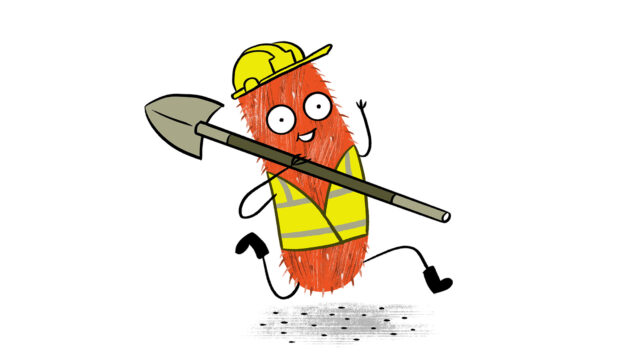
Resource
Headache Procedure Comfort Plan (Pardon Our Dust)
This resource is temporarily offline for updates. We’re working with partners to improve it based on real-world feedback. Check back later this year!

Resource
Headache Procedures Numbing Cream Guide (Pardon Our Dust!)
This resource is temporarily offline for updates. We’re working with partners to improve it based on real-world feedback. Check back later this year!
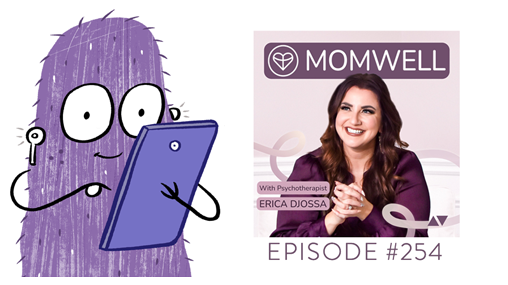
Resource
Momwell Podcast: Pain Management During Shots for Kids with Dr. Jody
This episode of the Momwell Podcast dives into a topic close to every parent's heart: helping kids feel confident and calm during medical visits—especially when it comes to needles.
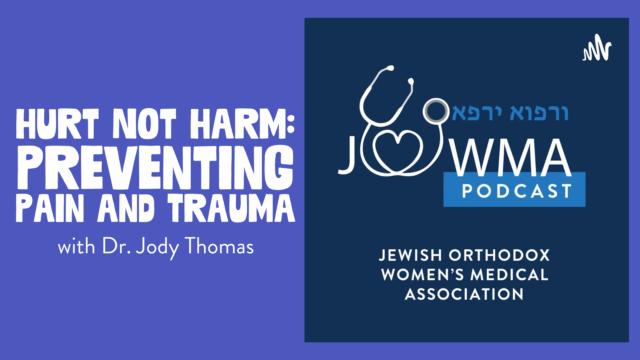
Podcast
Jewish Orthodox Women's Medical Association Podcast: Hurt, Not Harm, Preventing Pain and Trauma with Dr. Jody
Join Dr. Jody Thomas as she dives into the future of pain management, where psychology, proactive strategies, and virtual reality are transforming how we support kids through tough moments. From busting myths to sharing real patient success stories, this episode is packed with insights for anyone looking to prevent pain and trauma.
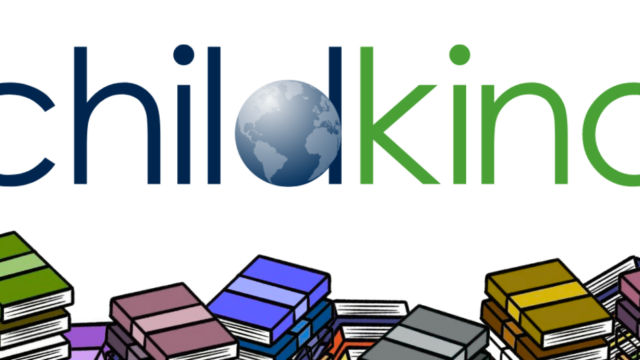
Article
The ChildKind Resource Library
Discover a wealth of tools and resources in ChildKind’s library to help healthcare professionals and parents manage pediatric pain effectively
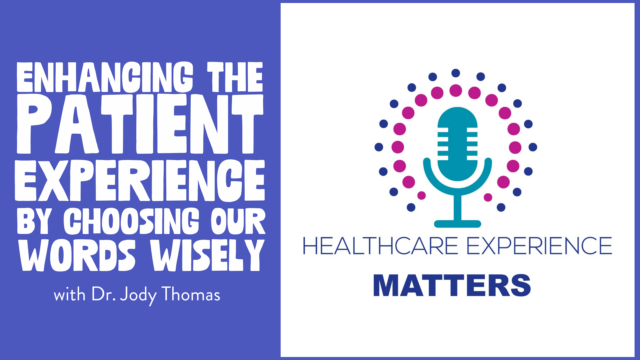
Podcast
Health Experience Matters Podcast: Enhancing the Patient Experience by Choosing Our Words Wisely
Discover how simple shifts in language can transform medical experiences for kids and families. Tune in as Dr. Jody shares practical tips to reduce anxiety and empower patients through the power of words.

About the Author
Leora Kuttner, Ph.D. has followed her passion to understand and relieve pain for 39 years. She is a Clinical Psychologist, Clinical Professor of Pediatrics at University of British Columbia at BC Children’s Hospital, Vancouver, Canada, and a documentary filmmaker, creating five award winning films on children’s pain. She pioneered work in pediatric pain-relief, using methods such as hypnosis for children, has written two books, published journal articles and teaches world-wide. Leora won The Woman of Distinction in Vancouver, the Outstanding Alumni for Professional Achievement from Simon Fraser University, The American Pain Society’s Jeffrey Lawson Award on Advocacy for Children’s Pain Relief and in 2014 the ASCH William C. Wester Award for Excellence in Child Hypnosis. Above all, Leora loves children!
www.drleorakuttner.com